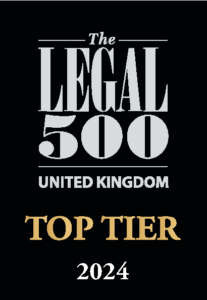Advice on making or defending charity defamation claims
At Nelsons, we understand that a charity’s reputation is its most valuable asset. Our experienced team of defamation solicitors in Derby, Leicester and Nottingham specialises in protecting the good name of charitable organisations across the UK.
We offer expert legal support to help you navigate the complex world of charity defamation and safeguard your organisation’s standing in the community.
Contact Us TodayRelated services
Understanding charity defamation
Defamation occurs when false statements are made that damage the reputation of an individual or organisation. For charities, this can have severe consequences, including:
- Loss of public trust
- Decreased donations
- Difficulty in recruiting volunteers or trustees
- Challenges in fulfilling charitable objectives
If a charity has had a false allegation made about them, for example by a former employee, a member of the public or another organisation, it is important that they act quickly to prevent the allegations from either being published in the first place or if it is published, from having any long-lasting and wide-reaching implications.
Likewise, if a charity has, for one reason or another, been accused of making a defamatory comment they should seek advice as soon as possible.
Our expert team can provide specialist advice to trustees of a charity on pursuing or defending defamation claims.
Meet the team
-
 Kevin Modiri
Kevin ModiriPartner & Solicitor
-
 Ruby Ashby
Ruby AshbySenior Associate & Solicitor
-
 Stuart Parris
Stuart ParrisSenior Associate & Solicitor
-
 Ronny Tang
Ronny TangAssociate & Solicitor
Defamation claims involving a charity – how our solicitors can help
If a defamatory comment has been made against your charity, or you are aware that an allegation will soon be made about your charity, our team can provide you with expert advice. Our advice will focus on how you can protect your charity’s reputation and, if necessary, what legal remedies are available so you can obtain compensation for any financial and/or reputational harm that your charity has suffered.
Our team also provides advice in the circumstances where a charity has been accused of making an untrue statement about a third party. We can advise of any legal action taken against your charity and support you in resolving the dispute.
We work with charities across the country to resolve various types of disputes at the earliest possible stage through negotiation or other forms of alternative dispute resolution, such as mediation. Court action is a last resort but, if a case gets there, our team puts forward the best possible case, never losing sight of your charity’s objectives.
Why choose Nelsons?
 Specialised expertise – Our team has extensive experience in both charity law and defamation cases, providing you with targeted, relevant advice. Our team is also ranked in tier one by the independently researched directory, The Legal 500, and recommended as one of the top teams of specialists in the country.
Specialised expertise – Our team has extensive experience in both charity law and defamation cases, providing you with targeted, relevant advice. Our team is also ranked in tier one by the independently researched directory, The Legal 500, and recommended as one of the top teams of specialists in the country.- Reputation protection – We understand the unique challenges faced by charities and prioritise protecting your organisation’s standing and credibility.
- Cost-effective solutions – We offer practical, cost-sensitive approaches tailored to the not-for-profit sector.
- Holistic approach – Our services extend beyond legal advice to include reputation management and crisis communication strategies.
Testimonials…
Don’t let defamation threaten your charity’s mission!
Contact Nelsons today on 0800 024 1976 or via our online enquiry form for expert legal support in protecting your organisation’s reputation.
Make an enquiry
If you wish to contact us, please complete the form below. A member of our team will be in touch as soon as possible.
When you submit this form, you are consenting to a member of our team to contact you via phone or email regarding your request.
We encourage you to review our Privacy Notice
Main Contact Form
Used on contact page
Charity Defamation FAQS
Below, we have answered some frequently asked questions concerning charity defamation
-
What is charity defamation?
Charity defamation occurs when false statements are made about a charitable organisation that harm its reputation. This can include:
- False accusations of mismanagement or fraud
- Untrue statements about the charity’s activities or beneficiaries
- Malicious rumours about the charity’s trustees or employees
These statements must be communicated to a third party and cause, or be likely to cause, serious harm to the charity’s reputation.
-
How does UK law protect charities from defamation?
In the UK, charities are protected under the Defamation Act 2013. Key protections include:
- The “serious harm” threshold: Claimants must prove that the defamatory statement has caused or is likely to cause serious harm to their reputation.
- The right to bring an action: Charities, as non-natural persons, can bring defamation claims if the statement has caused or is likely to cause serious financial loss.
- Various defences available to defendants, including truth, honest opinion, and publication on a matter of public interest.
-
What are the potential consequences of defamation for a charity?
Defamation can have severe consequences for charities, including:
- Loss of public trust and damage to reputation
- Decrease in donations and financial support
- Difficulty in recruiting volunteers or trustees
- Challenges in fulfilling charitable objectives
- Potential regulatory scrutiny or investigation
-
What defences are available in charity defamation cases?
Common defences in charity defamation cases include:
- Truth: If the statement can be proven to be substantially true
- Honest opinion: If the statement is clearly presented as an opinion rather than fact
- Publication on a matter of public interest: If the statement was on a matter of public interest and the publisher reasonably believed it was in the public interest to publish
- Privilege: Certain statements made in particular contexts (e.g., in Parliament or Court proceedings) are protected
-
How can charities prevent defamation?
Charities can take several steps to prevent defamation:
- Maintain transparent operations and clear communication with stakeholders
- Implement robust social media and public relations policies
- Train staff and trustees on defamation risks and proper communication practices
- Regularly monitor mentions of the charity online and in the media
- Respond promptly and professionally to criticism or negative comments
-
What should a charity do if it believes it has been defamed?
If a charity believes it has been defamed, it should:
- Document all instances of the defamatory statement
- Assess the potential harm to the charity’s reputation and finances
- Consider requesting a retraction or correction from the publisher
- Seek legal advice to understand the options available
- Consider alternative dispute resolution methods before litigation
- If necessary, prepare for potential legal action
-
How long does a charity have to bring a defamation claim?
In the UK, the limitation period for defamation claims is one year from the date of publication of the defamatory statement. However, in cases of continuous publication (such as online content), the time may start from when the content was removed or last accessed.
-
Can individual trustees or employees sue for defamation related to their charitable work?
Yes, individual trustees or employees can sue for defamation if false statements are made about them in relation to their work with the charity. However, they would need to prove that the statement caused or is likely to cause serious harm to their personal reputation.
-
How does the law handle online defamation of charities?
Online defamation is treated similarly to traditional forms of defamation under UK law. However, there are some unique considerations:
- The global nature of the internet can complicate jurisdictional issues
- The ease of sharing information online can lead to wider, faster spread of defamatory content
- There are specific procedures for requesting removal of defamatory content from websites and search engines
- The Defamation Act 2013 provides some protections for website operators who follow certain procedures when notified of potentially defamatory user-generated content
Get in touch
Speak to us now on 0800 024 1976Email Us





